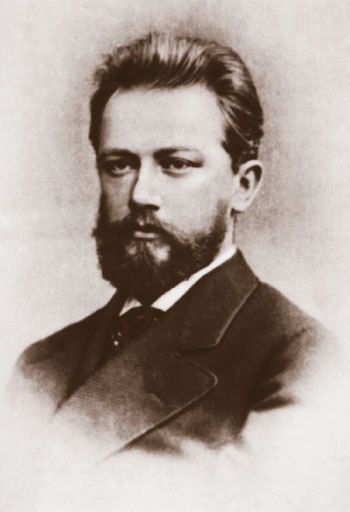Double birthday, Sofronitsky, 2025
This Week in Classical Music: Might 5, 2025. Double birthday, Sofronitsky. Might 7th is in two days, adate that creates a yearly conundrum: the birthday of two nice composers, Johannes Brahms and Peter Tchaikovsky. Solely seven years separate them (Brahms was born in 1833, Tchaikovsky in 1840), each had labored with the “massive type”: symphonies, concertos, however musically, they’re very totally different. Brahms labored beneath the affect and within the custom of Beethoven, whereas Tchaikovsky tried to create a brand new nationwide musical model. In a few of our posts we had tried to handle their similarities (each wrote a few of the finest violin and piano concertos within the classical repertory, their symphonies are momentous, and so on.), different instances we tried to intensify the quite a few variations; we wrote about one composer after which one other.  None of it labored too nicely. We even famous that each wrote some music fairly in style with the general public, that we dislike strongly (extra of it, in truth, than different composers of their stature): Tchaikovsky in his ballets, Brahms in his Hungarian-themed items. So right this moment we’ll abandon our efforts and switch to different musicians who’ve their anniversaries this week.
None of it labored too nicely. We even famous that each wrote some music fairly in style with the general public, that we dislike strongly (extra of it, in truth, than different composers of their stature): Tchaikovsky in his ballets, Brahms in his Hungarian-themed items. So right this moment we’ll abandon our efforts and switch to different musicians who’ve their anniversaries this week.
An necessary Russian pianist, Vladimir Sofronitsky, was born on Might 8th of 1901, in St. Petersburg. Sofronitsky, one of many biggest interpreters of the music of Scriabin, was married to the composer’s eldest daughter (they married in 1920, 5 years after Scriabin’s loss of life). The Sofronitskys quickly moved to Warsaw in 1903, the place Vladimir began his piano classes. In 1913, the household returned to St. Petersburg, and in 1916, Vladimir entered the conservatory, the place his classmates had been Dmitry Shostakovich and the pianist Maria Yudina. In 1928, Sofronitsky went to Paris, the place he met and befriended two latest émigré composers, Sergei Prokofiev and Nikolai Medtner. In 1930, he was invited to show on the Leningrad (former St. Petersburg) conservatory. He was residing within the metropolis through the catastrophic WWII blockade, when greater than 600,000 Leningraders died of hunger. Sofronitsky was evacuated in April of 1942 and dropped at Moscow, the place he lived for the remainder of his life. For a few years, he taught on the Moscow Conservatory. Along with Scriabin, Sofronitsky was recognized for his interpretation of the music of Chopin, Schubert and Schumann. His method was removed from excellent (in that he reminds us of Alfred Cortot), however his musicianship was impeccable. Sofronitsky died in Moscow in 1961. Right here’s his recording of Scriabin’s breakthrough Sonata no. 3. There may be some confusion as to when this recording was made; we imagine it’s a later one, a studio recording from 1961, the yr of Sofronitsky’s loss of life.
Two distinguished conductors had been additionally born this week: Jascha Horenstein, on Might 6th of 1898 in Kiev, the Russian Empire, and Carlo Maria Giulini, on Might 9th of 1914. Horenstein studied in Vienna and labored as an assistant to Wilhelm Furtwängler. He moved to the US in 1940. Horenstein was an early champion of the music of Gustav Mahler; he additionally performed many composers of the 20th century. Giulini was born in a small coastal city of Barletta, Apulia, well-known for the 5th century bronze statue, Colossus of Barletta. Giulini studied on the Conservatorio Santa Cecilia in Rome and later performed the violin within the Orchestra of the Academy of Santa Cecilia, the place he labored with a few of the finest conductors. He began conducting late, partly as a result of through the struggle he was drafted into Mussolini’s military (a pacifist, he claimed to not have shot a single particular person). From 1944, his conducting profession flourished. He began on the radio orchestras of RAI, the Italian radio company, then labored on the Bergamo opera, the place he led performances of La Traviata with Maria Callas and Renata Tebaldi alternating the function of Violetta (what a deal with that was!). He was seen by Toscanini and Victor de Sabata, whom he changed in 1953 because the music director of La Scala. The next 5 years, with Giulini on the helm, had been a few of the biggest within the historical past of the theater. He went on to conduct main orchestras in Europe and the US, together with the Chicago Symphony and Vienna Philharmonic. Giulini lived to the age of 91 and died in 2005.

